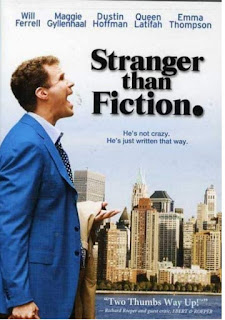John Keats was an English Romantic poet. He was one of the main figures of the second generation of Romantic poets, along with Lord Byron and Percy Bysshe Shelley. "La Belle Dame sans Merci" ("The Beautiful Lady Without Mercy") is a ballad by John Keats in 1819. The title is in French and it was derived from the title of a 15th-century poem by Alain Chartier called La Belle Dame sans Mercy.
O what can ail thee, knight-at-arms,
Alone and palely loitering?
The sedge has withered from the lake,
And no birds sing.
O what can ail thee, knight-at-arms,
So haggard and so woe-begone?
The squirrel’s granary is full,
And the harvest’s done.
I see a lily on thy brow,
With anguish moist and fever-dew,
And on thy cheeks a fading rose
Fast withereth too.
I met a lady in the meads,
Full beautiful—a faery’s child,
Her hair was long, her foot was light,
And her eyes were wild.
I made a garland for her head,
And bracelets too, and fragrant zone;
She looked at me as she did love,
And made sweet moan
I set her on my pacing steed,
And nothing else saw all day long,
For sidelong would she bend, and sing
A faery’s song.
She found me roots of relish sweet,
And honey wild, and manna-dew,
And sure in language strange she said—
‘I love thee true’.
She took me to her Elfin grot,
And there she wept and sighed full sore,
And there I shut her wild wild eyes
With kisses four.
And there she lullèd me asleep,
And there I dreamed—Ah! woe betide!—
The latest dream I ever dreamt
On the cold hill side.
I saw pale kings and princes too,
Pale warriors, death-pale were they all;
They cried—‘La Belle Dame sans Merci
Hath thee in thrall!’
I saw their starved lips in the gloam,
With horrid warning gapèd wide,
And I awoke and found me here,
On the cold hill’s side.
And this is why I sojourn here,
Alone and palely loitering,
Though the sedge is withered from the lake,
And no birds sing.
The poem starts with the question. There is unnamed speaker who is asking question to the knight. So he is asking to the knight that what is bothering to him and why he is roaming alone and why he looks pale. The weather is also dry as the sedge in the lake is dried and no birds are singing. So speaker is asking to the knight that why he is loitering alone in this type of season.
In second stanza, speaker is repeating his question that what is bothering the knight. Why the knight is looking so worried and miserable? The season of harvest is over and now squirrel also has its food.
In third stanza, the speaker says that he sees lily on the eyebrow of knight. With that lily he can also see that knight is suffering from some illness. Then speaker says that the cheek of knight is looking aged like faded rose.
From fourth stanza, the knight is speaking. Knight says that he met a lady in the meads. The lady was so beautiful. She was looking like a fairy child. Then knight describes her appearance and says that she has long hair, light foot and wild eyes.
In next stanza knight says that he made garland for her hand and bracelet and fragrant zone also. Then they both made love and the lady was sweetly moaning.
In next stanza, knight sat her on his horse and he was walking besides the horse. Knight was so amazed by the beauty of the lady that he didn’t see anything else but her. The lady also was singing fairy song by bending towards the knight.
In next stanza, the lady find knight some food to eat like roots, honey and manna. The lady was speaking the language which knight was not understanding. Though he could not understand what she was speaking, he was sure that she said him that she loves him. So knight is so mad after the beauty of lady that he assumes that lady also loved him.
In next stanza, the lady took knight to some cave. In that cave the lady started crying and she get sore. After that knight shut the wild eyes of lady and then gives her four kisses on her eyes.
In next stanza, the lady made knight asleep by singing lullaby. At that time knight saw a dream. The knight was in sudden shock and he thought that great misery has happened to him. He was having this dream for the first time at cold hill side.
In next stanza knight says that he saw some kings, princes and warriors in his dream. Those all were in very bad condition. They all were looking death pale. They all were crying that the lady without mercy has had you under her power.
In next stanza knight says that all kings, princes and warriors lips are starved. The dream was horrifying, which makes knight awake suddenly. But when knight woke up he found him self on that cold hill side.
In last stanza, knight says that this is the reason why he is loitering alone where everything is dry and no birds are singing. Last three lines of the last stanza is the same as the first stanza. So poem ends the way it was started.
The poem is divided in 12 stanzas 4 lines each. The poem has ABCB rhyme scheme. It is a ballad. First three stanzas of the poem are spoken by unnamed speaker and from fourth to the twelfth are spoken by knight.
Thank you.




















